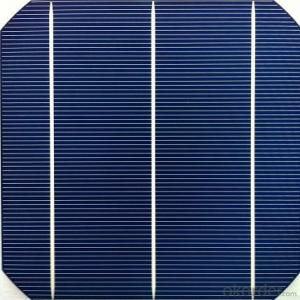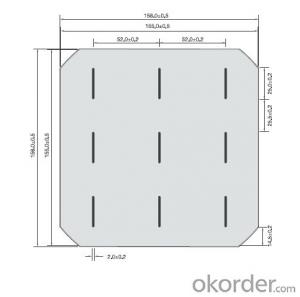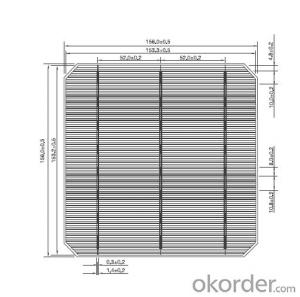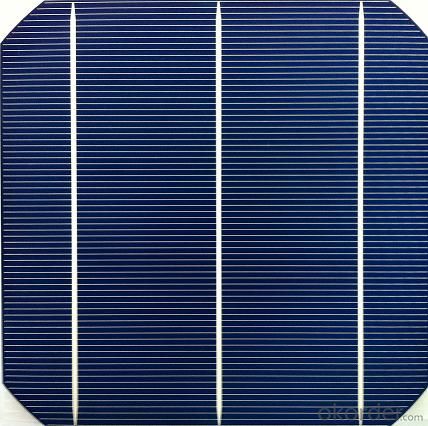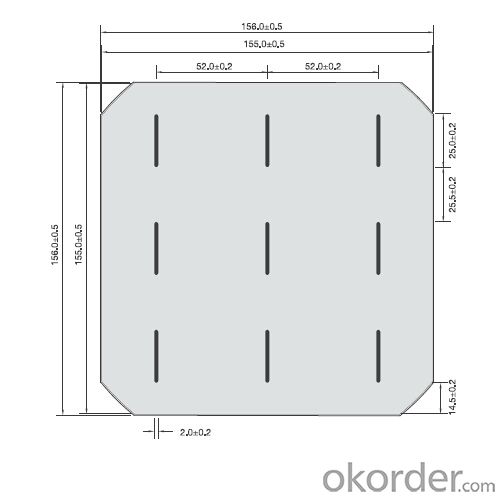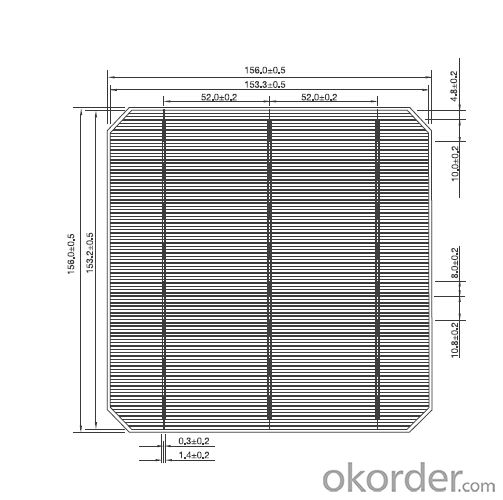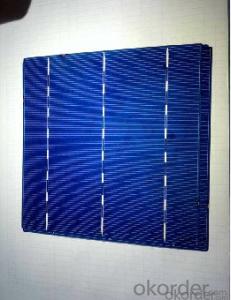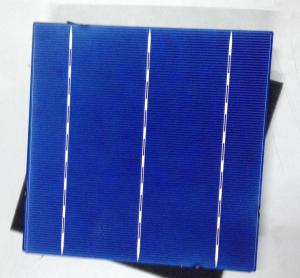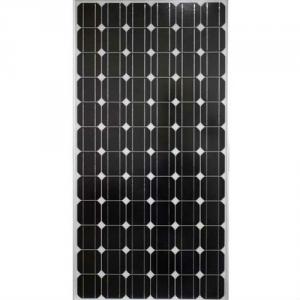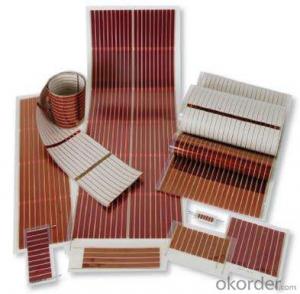Mono cell JAC M6SF-3 (Cypress2)
- Loading Port:
- China Main Port
- Payment Terms:
- TT OR LC
- Min Order Qty:
- -
- Supply Capability:
- -
OKorder Service Pledge
Quality Product, Order Online Tracking, Timely Delivery
OKorder Financial Service
Credit Rating, Credit Services, Credit Purchasing
You Might Also Like
JACM6SF-3 3BB CYPRESS2 MONO SOLAR CELL
JA solar's high effciency mono cell, manufacturing modules with more than 265W(6x10)and 320W(6x12)power putput becomes easier than ever.
Futures:
Format:156mmx156mm±0.5mm
thickness:210um±30um
Front:1.4mm bus bar(silver).blue anti-reflecting coating(silicon nitride)
back:2mm wide solding pads(silver)backsurface field(aluminum)
Data sheet
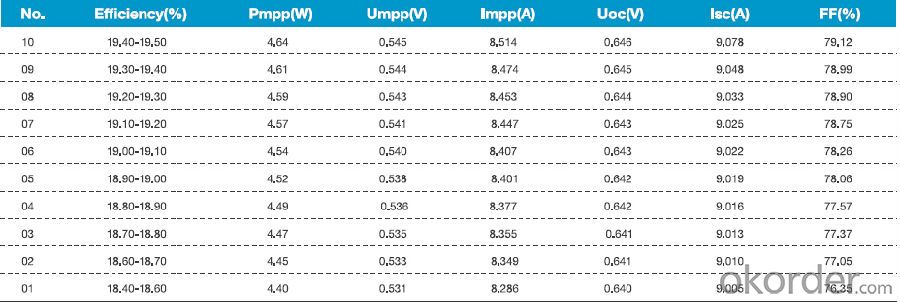
- Q: What is the impact of hurricane-force winds on solar cell efficiency?
- Hurricane-force winds can have a significant impact on solar cell efficiency. These strong winds can cause physical damage to the solar panels, such as breaking or displacing them, which directly affects their ability to generate electricity. Additionally, debris and flying objects carried by the winds can scratch or shatter the protective glass covering the solar cells, reducing their efficiency further. Therefore, the impact of hurricane-force winds on solar cell efficiency is generally negative and can result in a temporary or permanent decrease in energy production.
- Q: How do solar cells perform in high-pollution areas?
- Solar cells perform less efficiently in high-pollution areas due to the reduced amount of sunlight reaching the cells. The presence of pollutants in the air, such as smog or dust, can block and scatter sunlight, thereby decreasing the overall energy output of the solar cells. Regular cleaning and maintenance of the panels can help mitigate the impact of pollution on their performance.
- Q: Are there any subsidies or incentives for installing solar cells?
- Yes, there are subsidies and incentives available for installing solar cells. Many governments and local authorities offer financial incentives such as tax credits, grants, and rebates to encourage the adoption of solar energy. Additionally, some utility companies provide feed-in tariffs or net metering programs, which allow solar system owners to sell excess electricity back to the grid or receive credits on their energy bills. These subsidies and incentives aim to make solar installations more affordable and promote the transition to clean and renewable energy sources.
- Q: What is the role of solar cells in powering streetlights?
- The role of solar cells in powering streetlights is to capture sunlight and convert it into electricity, which is then stored in batteries. This stored energy is used to power the streetlights during the night, reducing the dependence on the electrical grid and minimizing energy costs and environmental impact.
- Q: Can solar cells be used in electric fences?
- Yes, solar cells can be used in electric fences. Solar cells can convert sunlight into electricity, which can power the electric fence energizer. This eliminates the need for a constant power supply or batteries, making it a sustainable and cost-effective option for powering electric fences.
- Q: Can solar cells be used for off-grid applications?
- Yes, solar cells can indeed be used for off-grid applications. Solar cells convert sunlight into electricity, which can be stored in batteries for later use. This capability makes them ideal for powering off-grid applications such as remote cabins, RVs, and even small electronic devices like calculators and outdoor lighting. By harnessing the power of the sun, solar cells offer a sustainable and reliable energy source for off-grid situations.
- Q: How are solar cells manufactured?
- Solar cells are manufactured through a multi-step process that involves the production of silicon wafers, the creation of a p-n junction, the addition of anti-reflective coatings, and the assembly of electrical contacts.
- Q: Can solar cells be used for powering communication towers?
- Yes, solar cells can be used for powering communication towers. Solar energy can be harnessed using photovoltaic cells, which convert sunlight into electricity. These cells can generate power throughout the day, making them a reliable source of energy for communication towers that require continuous operation. Additionally, solar cells can be integrated with batteries to store excess energy for use during nighttime or cloudy periods, ensuring uninterrupted power supply to communication towers.
- Q: Can solar cells be used for powering remote military installations?
- Yes, solar cells can be used for powering remote military installations. Solar power provides a reliable and sustainable energy source that can be harnessed in remote areas where traditional power sources are inaccessible or impractical. Solar cells can generate electricity to meet the energy demands of military installations, reducing dependence on fossil fuels and improving operational efficiency. Additionally, solar power systems offer flexibility and can be easily deployed and maintained in remote locations, making them an ideal choice for powering military facilities.
- Q: How do solar cells work to become the solar energy?
- The solar cells work by using the solar power from sunshine to generate the energy such as electricity to become solar energy.
Send your message to us
Mono cell JAC M6SF-3 (Cypress2)
- Loading Port:
- China Main Port
- Payment Terms:
- TT OR LC
- Min Order Qty:
- -
- Supply Capability:
- -
OKorder Service Pledge
Quality Product, Order Online Tracking, Timely Delivery
OKorder Financial Service
Credit Rating, Credit Services, Credit Purchasing
Similar products
Hot products
Hot Searches
Related keywords
